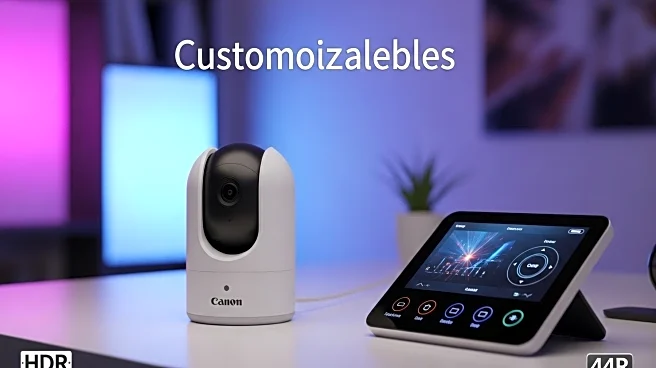What's Happening?
Arlo has launched the Essential 2K security camera, offering a cost-effective solution for home security with premium features typically found in higher-priced models. The camera boasts 2K resolution, weather resistance, two-way audio, color night vision, and a built-in siren. It integrates seamlessly with smart home platforms like Alexa and Google Home, although it currently lacks support for Apple HomeKit. A standout feature is its advanced customization options available through higher-tier subscriptions, allowing users to set up custom detection for facial and vehicle recognition. This feature enables the camera to identify specific objects or changes in the environment, such as recognizing when a pet toy appears or when a garage door opens.
Why It's Important?
The introduction of the Arlo Essential 2K camera represents a significant shift in the home security market, making advanced security features accessible to a broader audience due to its affordability. This could lead to increased adoption of smart home security systems, enhancing safety and convenience for many households. The camera's ability to integrate with popular smart home platforms further positions it as a versatile option for consumers looking to streamline their home automation systems. The customization features could appeal to tech-savvy users who wish to tailor their security systems to specific needs, potentially driving innovation in the industry.
What's Next?
Arlo's decision to offer advanced features through subscription services may influence other companies in the home security market to adopt similar models, potentially leading to a shift towards subscription-based services for premium functionalities. Consumers might see more options for personalized security setups as companies compete to offer unique features. Additionally, Arlo's potential future support for Apple HomeKit could expand its user base, appealing to Apple users who seek integration with their existing smart home ecosystems.
Beyond the Headlines
The move towards subscription-based models for advanced security features raises questions about the long-term costs for consumers and the potential for increased reliance on cloud-based services. This trend could lead to discussions about data privacy and security, as more personal information is stored and processed online. Furthermore, the ability to customize security settings may prompt ethical considerations regarding surveillance and the balance between security and privacy.










